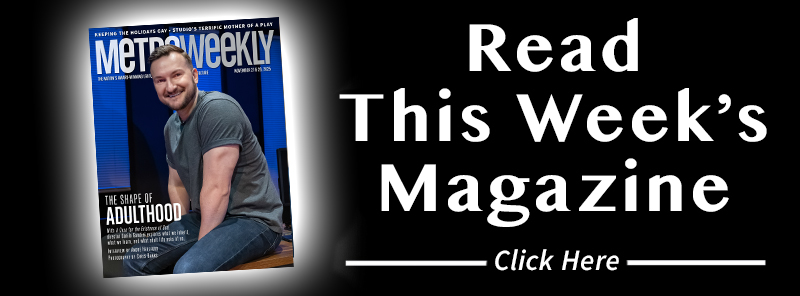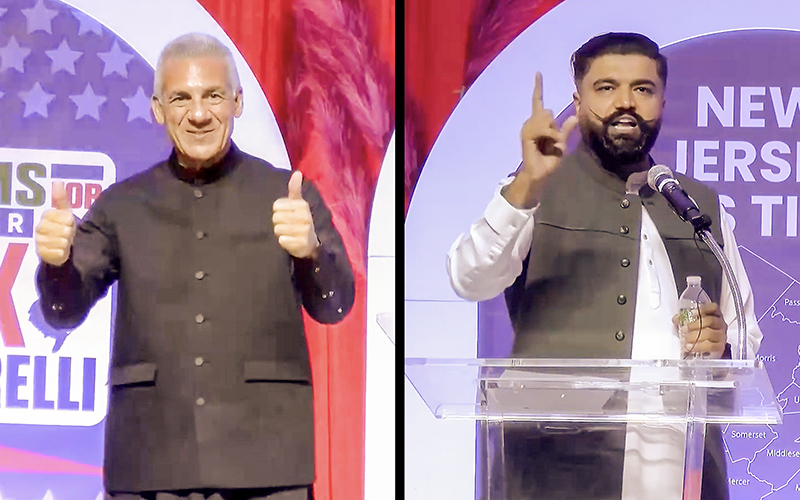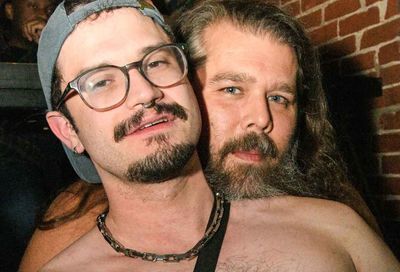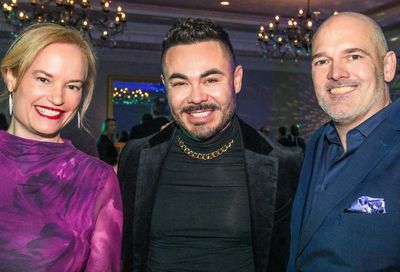Alito Hints Supreme Court Won’t Overturn Gay Marriage Ruling
Justice Alito says Obergefell remains a precedent “entitled to respect,” despite his personal opposition to same-sex marriage.

U.S. Supreme Court Justice Samuel Alito hinted in recent remarks that the court is unlikely to overturn its 2015 decision legalizing same-sex marriage nationwide — even though he personally disagrees with it.
Part of the court’s six-member conservative majority, Alito made the remarks on October 3 during an academic conference hosted by the C. Boyden Gray Center for the Study of the Administrative State at George Mason University’s Antonin Scalia Law School.
In his speech, Alito referenced the Obergefell marriage equality decision while praising what he called the “bright future” of constitutional originalism — the idea that the Constitution should be interpreted as the founders intended when they wrote it in 1787.
According to USA Today, Alito repeatedly described himself as a “working judicial originalist” with “originalist aims while working within the framework of our legal system.”
Taking aim at the Obergefell decision, Alito urged fellow originalists to consider how ordinary Americans might have understood the Founders’ words two centuries ago. He argued that the ruling — which struck down all state bans on same-sex marriage — showed how justices can be “too quick to read certain constitutional provisions to embody broad abstract principles and to justify results that would have astonished those who framed and ratified those provisions.”
Although he echoed his past criticism of the ruling, Alito was careful not to suggest that the 2015 decision should be overturned, even though he personally opposes same-sex marriage.
“I am not suggesting that the decision in that case should be overruled,” Alito said. “I have to state that so that what I say today is not misunderstood.”
Alito, who wrote the court’s opinion in Dobbs v. Jackson Women’s Health Organization — the 2022 ruling that overturned Roe v. Wade and ended the constitutional right to abortion — noted that overturning precedent in that case did not carry similar implications for same-sex marriage.
“Obergefell is a precedent of the Court that is entitled to the respect afforded by the doctrine of stare decisis,” Alito said. “And as I stated in my opinion for the Court in Dobbs, more than once, nothing in Dobbs was meant to disturb that decision.”
In a 2020 speech, Alito argued that Obergefell has jeopardized the free speech rights of people who oppose same-sex marriage — an outcome he said was inevitable given the ruling’s departure from originalist principles.
On the bench, the George W. Bush appointee has frequently opposed rulings expanding LGBTQ rights, arguing they infringe on the freedoms of social conservatives. For example, he dissented in Bostock v. Clayton County, the 2020 decision finding that LGBTQ employees are protected from workplace discrimination under Title VII of the Civil Rights Act.
Alito joined the majority in cases allowing a website designer to refuse wedding-related services to same-sex couples and a baker to decline making wedding cakes for them.
Last year, he issued a statement — in a case the high court declined to hear — arguing that excluding jurors who express anti-LGBTQ bias from discrimination cases amounts to “discrimination” against Christians. He added that the case “exemplifies the danger” posed to religious conservatives by the Obergefell ruling.
Even so, many court observers believe Alito — and likely a majority of the Court — will ultimately decline to take up a challenge from former Kentucky clerk Kim Davis seeking to overturn Obergefell.
Davis and her attorneys, working with the anti-LGBTQ group Liberty Counsel, argue that her case is the ideal vehicle to overturn Obergefell, which they claim was wrongly decided and compels people like Davis to violate their religious beliefs.
However, court observers point out that the key issue in Davis’s legal challenge is whether she owes damages to one of the same-sex couples she denied a marriage license — not whether same-sex marriage violates her religious beliefs. Most experts believe only Alito and Justice Clarence Thomas would vote to hear the case, though Alito’s recent comments suggest he likely would not.
Support Metro Weekly’s Journalism
These are challenging times for news organizations. And yet it’s crucial we stay active and provide vital resources and information to both our local readers and the world. So won’t you please take a moment and consider supporting Metro Weekly with a membership? For as little as $5 a month, you can help ensure Metro Weekly magazine and MetroWeekly.com remain free, viable resources as we provide the best, most diverse, culturally-resonant LGBTQ coverage in both the D.C. region and around the world. Memberships come with exclusive perks and discounts, your own personal digital delivery of each week’s magazine (and an archive), access to our Member's Lounge when it launches this fall, and exclusive members-only items like Metro Weekly Membership Mugs and Tote Bags! Check out all our membership levels here and please join us today!

























You must be logged in to post a comment.